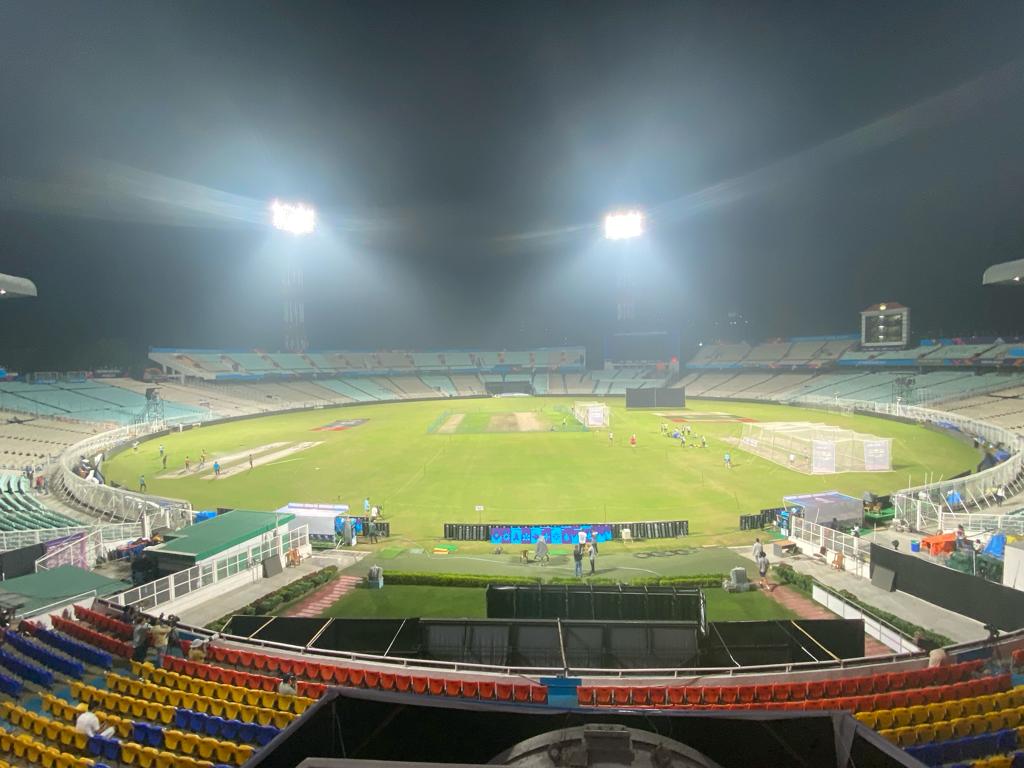
As one watched some Australians leave the Eden Gardens around the same time that the South Africans arrived for their training on Tuesday, a flood of memories from two semifinals, three years apart, came rushing to the mind. At a time it is par for yesterday to be forgotten in a jiffy, it is amazing how easily some freezeframes from so long ago come back to the consciousness.
The sight of Australia and South Africa and a return to Eden Gardens ahead of a World Cup semifinal sparked a walk down memory lane. It was inevitable that the India-Sri Lanka match in Kolkata from 1996 and the Australia-South Africa contest in Birmingham in 1999 came floating back on an emotional visit to the Eden Gardens press box after a decade and a half.
In 15 minutes, replays in the mind were sepia-toned to begin with and acquired the tapestry of rich colour before long. Besides, the chaos at the end of both games, the rush to process what happened and the race to meet deadlines to share the emotions with readers,who were well aware of the outcomes by the time the newspapers were delivered to their home, came rushing back.
The last time a World Cup semifinal was played in Eden Gardens was in 1996 when India, coming after an emotionally surcharged win against Pakistan in the quarterfinals, took on Sri Lanka. The standout memory from that game is Aravinda de Silva’s counterattack after he walked in to bat at the fall of the second wicket with just a run on the board.
Roshan Mahanama played a supporting role with a half-century of his own, and with useful contributions from Arjuna Ranatunga, Hashan Tillekaratne and Chaminda Vaas, Sri Lanka passed the 250-run mark on a track that showed signs of deteriorating. That Sachin Tendulkar bowled 10 overs of spin was an indication of the challenges ahead of the Indians.
Yet, when he batted, the demons in the track did not dare surface, but when he fell to a stumping by Romesh Kaluwitharana off Sanath Jayasuriya after a substantial stand with Sanjay Manjrekar, the home team’s fate was all but sealed. From 98 for one, the side slid to 120 for eight when the crowd started throwing bottles on the ground.
The ICC Match Referee Clive Lloyd reviewed the situation for a while and when the crowd started pelting missiles again when the match was about to resume, he decided to award the match by default to Sri Lanka. Many remember Indian left-handed bat Vinod Kambli in tears when the teams were coming off the field.
Many were unaware of the rule under which Lloyd decided to default India and it took us a while to figure out before we could start writing our pieces. I cannot forget having to run to the hotel to be able to file my dispatch after discovering that the press box telecom staff had left for their homes before the reporters could complete their pieces.
It was a different kind of chaos three years later.
The 1999 semifinal featuring Australia and South Africa in Edgbaston generated a different kind of a chaos — the end sent many journalists rewriting their pieces and eventually scurrying to the ICC playing conditions to see how a tie would be resolved. Australia sneaked in to the final on the basis of its better placing in the Super Sixes stage, thanks to their net run rate.
The whole narrative is pinned on Allan Donald’s run out with one run needed off two deliveries, but it was a greater game than to be remembered only for that. Shaun Pollock claimed five wickets and Allan Donald four to team up with Jacques Kallis’ restrictive bowling to stop Australia at 213.
A battling 90-run stand between skipper Steve Waugh and Michael Bevan took Australia to a modest total. Present day fans may find it tough to cheer a run rate of 4.26 runs per over, but back then on a track that was known to assist bowlers, it was a competitive score. More so, when a team was up against a determined Australia.
Chasing 214 for victory, South Africa was stymied by the brilliance of Shane Warne, who claimed three top-order wickets in the span of seven balls. Kallis and Jonty Rhodes pulled it back with a 94-run stand when Australia’s renowned never-say-die spirit was on show yet again. The pendulum swung South Africa’s way when the left-handed Lance Klusener waded into the attack.
Suffice to say that it was a Test match in disguise, one that tested the nerves of the men in the middle, and of the people watching the game from beyond the boundary. The entire Australian team converged in the middle in celebration, Donald was left on his knees and Klusener looked back in despondency as he continued sprinting towards the pavilion.
Of course, Australia and South Africa faced off in the West Indies in 2007 as well but that was so one-sided that one does not remember anything from that game, barring the fact that Glenn McGrath reduced that to a no-contest inside the first 10 overs.
If the human mind is capable of pulling up memories from a generation earlier, it can also be trained to focus on the present. Sportspersons do not have the luxury of dwelling on the past, especially during a massive contest. As they engaged in the duel at Eden Gardens, the two sets of cricketers left lesser mortals to play with nostalgia.



